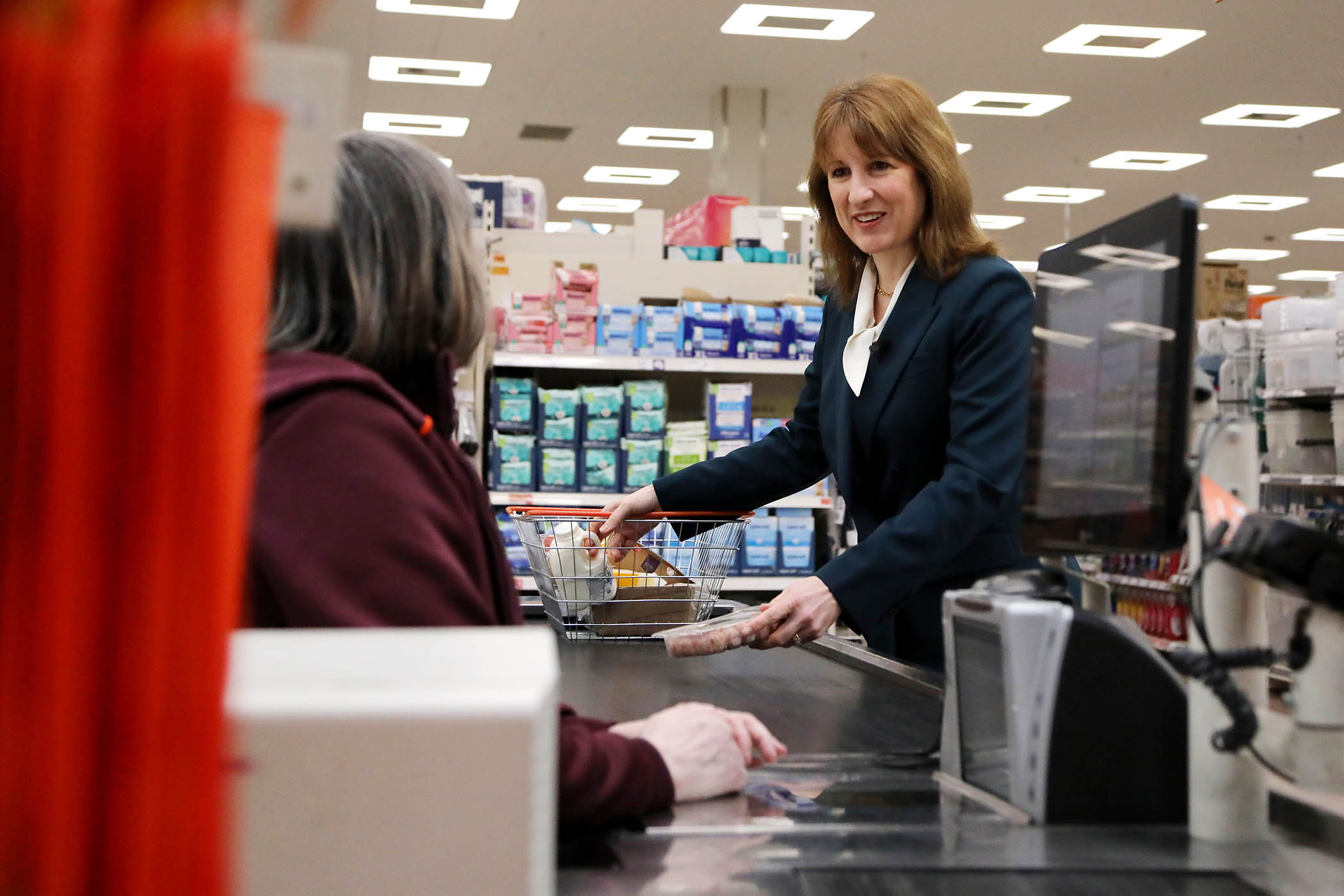Britain is a country of contradictions. Last Thursday, the FTSE 100 index of the UK’s most valuable companies hit an all-time high. On Friday, data revealed the economy contracted 0.1% in May.
As a services-led economy, the UK should be well positioned to succeed in an era of trade wars that usually impact goods. And yet, as new research from the London School of Economics shows, that advantage has been bludgeoned by Brexit, with services exports in the following five years 4 to 5% lower than they would have been without added trade frictions.
For professional services, which account for 8% of the UK economy, artificial intelligence disruption poses an added threat.
Another glaring mismatch: Britain is governed by a party with a commanding majority that names growth as its top priority, but has shown it will cave to other ideological considerations when pushed. As one executive said last week: “The video doesn’t match the audio.”
Ahead of the chancellor’s Mansion House speech on Tuesday, a marquee opportunity to pitch her growth plan to the City, Rachel Reeves is grasping for a narrative that paints a better picture of the UK’s finances.
The original centrepiece of her speech, a plan to reduce the annual limit for cash ISAs in order to direct some of the UK’s £300bn of savings into investing in domestic companies, has been shelved following stiff opposition from banks and building societies.
Reeves will focus instead on a growth plan for the financial sector that includes a “concierge service” for foreign firms setting up shop in the UK, and a digital overhaul for capital markets.
But faced with a fiscal shortfall that some economists estimate could be more than £20bn, there is a limit to what such tinkering can achieve. As Paul Johnson, outgoing director of the Institute for Fiscal Studies, has written, Reeves may soon have to “face the fantasists” – both within her own party and across the chamber – and commit to further broad tax rises.
Challenges facing the UK economy can be broadly grouped into four categories: productivity, debt, demographics and investment.
Productivity
This week’s GDP figure showed the economy further contracted in May after shrinking by 0.3% in April. But in the first quarter GDP growth was up 0.7%. Trade disruptions, the introduction of a £26bn payroll tax on employers, rising energy and water bills and increased taxes on home purchases could all be contributing to fluctuating growth figures.
Newsletters
Choose the newsletters you want to receive
View more
For information about how The Observer protects your data, read our Privacy Policy
More illuminating is that the UK’s growth in GDP per head has fallen by more than that of any other large high-income economy since the financial crash. That is not a problem of Reeves’s making, but one to which she must quickly find an answer. That production and construction output both fell in May, by 0.9% and 0.6% respectively, spells trouble for Labour’s growth ambitions, which are heavily staked on a pledge to build 1.5m new homes.
Debt
Interest on debt has been the fastest growing area of government spending over the last three years – metastasising from £25bn in 2020 to over £111bn forecast by the OBR in 2025-26. The most recent wobble in the bond markets, when the chancellor’s job looked under threat, added an estimated £1bn a year in debt interest. “Reeves’s fiscal stance is hanging like a gossamer thread, and that gossamer thread has gotten a whole lot thinner since the benefits U-turn,” one senior business figure said.
Again, this is an accumulation of problems. Before Labour came to power, a quarter of UK government gilts were index-linked, meaning their interest payments rose with inflation. This exposure is much higher than in other major economies, so when the “bomb” of rising inflation went off, the UK was left in a worse place than others. To make matters worse still, the percentage of UK debt held by private foreign investors has doubled since 2004 to 25%, leaving Reeves largely at the mercy of the so-called bond “vigilantes” – and populist resentment at the bond markets’ power.
Demographics
Without changes to policy, the Office for Budget Responsibility warned last week that debt as a percentage of GDP could reach 274% by 2071 mainly owing to support for an ageing population. Longer lifespans have meant that one particular policy – the triple lock on pensions – which was supposed to cost £5.2bn a year by 2029-30, will now cost closer to £15.5bn.
The elderly aren’t the only worry though. Health-related benefit claims by working-age people have risen sharply by £12bn over the past four years and are set to grow along a similar trajectory.
Investment
Tackling chronic underinvestment in the UK is an area where this government has won plaudits, but there’s a risk the rewards won’t be felt before the end of this parliament. Steps to consolidate pension pots and redirect that cash pile away from gilts and into equities is sensible, given fundraising for UK floats on the stock market is at a three-decade low.
Targeting growth sectors such as AI, life sciences and green finance in its industrial strategy is a much-needed recognition of the country’s strengths.
On Tuesday, Reeves will tell UK investors in Guildhall that workers and businesses should be “assured of their own capability, and of the ability of our country to boldly face the challenges that lie ahead.” She is going to need to heed her own advice.
Photograph by Carl Court/Getty Images



